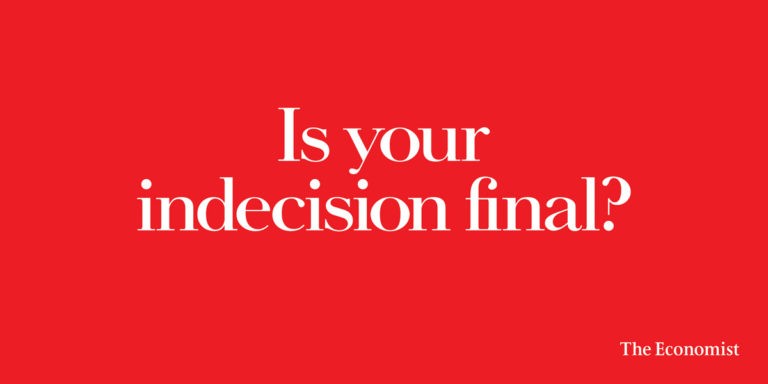Despite struggling to stand-out, why do so few agencies realise that poor qualification is tantamount to having no strategy at all?

From propositions and models, to marketing or pitch performance, Co:definery projects almost always cover qualification, one of the least understood parts of the new-business puzzle.
Some agencies endlessly debate qualification, wasting precious energy and taking wildly inconsistent decisions. Others have no filter at all, regularly putting out at a moment’s notice.
Bonkers (literally).
Qualify or die
Clearly chasing everything isn’t smart. Like turnover being vanity to profit’s sanity, instead of leading to new-business success, a plump pipeline often risks the opposite.
But many agencies have a compulsion to compete. With no filter, pitches becomes lotteries. And splurging all your money on lucky dips isn’t optimism; it’s recklessness.
Losing regularly is suicide. Aside from the time and money you’re pissing away, the stench of new-business failure infects the whole agency, draining the reservoir of goodwill you rely on to win regularly.
Consistently good decisions
The key to qualifying well is simple self-awareness:
Doing the right thing is easy when you know who you are
But sadly agencies often don’t know who they are. And ‘doing the right thing’ – focusing on work that supports your purpose and rigorously applying the same criteria every time – rarely extends beyond the superficial cliché of ‘fame, fortune, fun’.
More than a one-off decision
Qualification is usually characterised as just the classic yes-or-no decision when clients invite you to pitch. In fact, that’s the tip of the iceberg.
Long before that knock at your door, your marketing and lead generation should be informed by the same criteria. Targeting is qualification and self-sourced opportunities need quality control too.
Also, qualification doesn’t end with a ‘yes’. Fit isn’t static, so win probability is dynamic. Remember the sunk cost fallacy and retain the option to walk.
More to the point, ensure the client knows you may yet decline. If they genuinely value your expertise, they’ll feel a sense of jeopardy that enables you to influence the process and avoid stumbling into a beauty parade.
Being qualified to qualify
Qualification needs an empowered owner, capable of exercising discretion. Even just applying your pre-agreed criteria to assess that incoming yes/no requires dexterity and judgement.
- Are they capable of diagnosis and playing the ‘no’ card in a way that might lead to a ‘yes’?
- Can they persuade a CMO to alter their selection process?
- Can they transform a marginal call into a firm ‘yes’?
This question of authority is one reason why hiring newbiz people is so fraught. And if you don’t trust them to qualify, then you’re contributing to an illusion of accountability that sinks many a new-business ship.
Becoming justifiably confident
Winning consistently needs focus. And that requires serious quality control – a lack of which suggests a dangerous absence of strategy.
But by defining your expertise and the value you offer, you can say yes and no at the right times, helping you stand-out, influence the process and command a premium.
Becoming justifiably confident – no longer cocksure or desperate – means finally leaving the pain of commoditisation behind. And that’s how you keep winning over time.